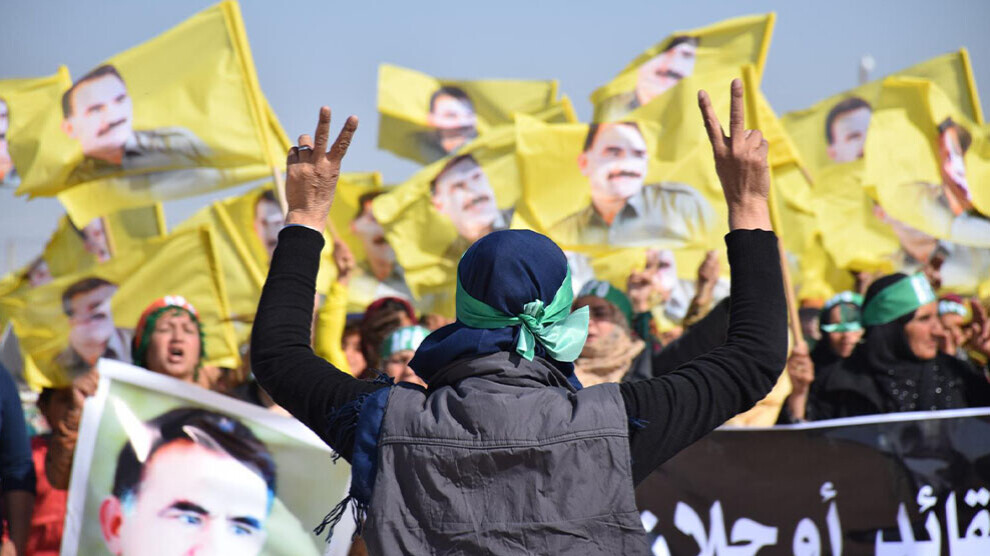February 15 is considered by Kurdish society as Roja Reş - "Black Day". In 1999, this date marked the culmination of the international plot that began on October 9, 1998. In the course of this period, PKK founder Abdullah Öcalan, considered the mastermind of the Kurdish liberation movement and the Kurds' most important political representative, was first declared persona non grata in Syria and then endured a 130-day odyssey between Moscow, Athens, Rome and Amsterdam before finally being abducted from the Greek embassy in the Kenyan capital Nairobi and handed over to Turkey in violation of international law. Since then, Abdullah Öcalan has been held incommunicado on the Turkish prison island of Imrali.
But even under these difficult conditions, he is committed to solving the Kurdish question. Öcalan is the source of ideas for democratic confederalism, a grassroots democratic, ecological social system based on women's liberation - which is currently being filled with life in Rojava and in northeastern Syria by the societies living there. A hope for an ecological life based on women's liberation. An important work that he developed in solitary confinement is the road map for a realistic way to end the war between the Turkish state and Kurdish freedom movement, which also received international recognition. However, negotiations conducted by representatives of the Turkish state with Öcalan were broken off by the Turkish side in 2015 when a breakthrough for a peace process was within reach.
People around the world took to the streets today to voice their demand for Abdullah Öcalan's freedom on the 22nd anniversary of his abduction - including in northern and eastern Syria. The population there has felt close to Öcalan since the early days of the Kurdish liberation movement. The soon-to-be 72-year-old Kurdish leader left Turkey about a year before the military coup in 1980 and stayed in Syria for a good nineteen years until his forced departure.
Central slogan: Bijî Serok Apo
Demonstrations to mark the February plot took place throughout the autonomous region on Monday. The central slogan, which repeatedly caused the ground to tremble beneath the protesters in a loud and militant manner, was "Bijî Serok Apo" –[Long live Leader Apo]. In Hesekê, the slogan on the front banner read "Free leader is the key to peace in the Middle East".

In the predominantly Christian-populated town of Til Temir in the Khabur Valley, many members of the local military councils organized under the umbrella of the Syrian Democratic Forces (SDF), as well as young women, marched in the lead.

A demonstration in Shaddadi was mainly attended by women, but many people also came from the neighboring towns of Erisha, Mergada and Dashisha.

In Hol, hundreds of people marched through the town. The area is also home to the internment camp of the same name, which holds thousands of ISIS members.

In Raqqa also, a demonstration was staged to protest the abduction of Abdullah Öcalan. Most of the participants were young Arab women and men.

Almost all residents of the Kurdish districts of Sheikh Maqsoud (Şêx Meqsûd) and Ashrafiyah (Eşrefiye) took part in an action in Aleppo.

A protest tent was set up in Tabqa as part of a vigil. Among the visitors were also many members of the local Arab tribal confederations.

In Deir ez-Zor, the Future Party of Syria, together with civil society institutions, organized a seminar on the background of the February plot and the ongoing isolation in the Imrali island prison.

There were also actions on February 15 in other cities such as Kobanê, Qamishlo, Amûdê, Dêrik.























